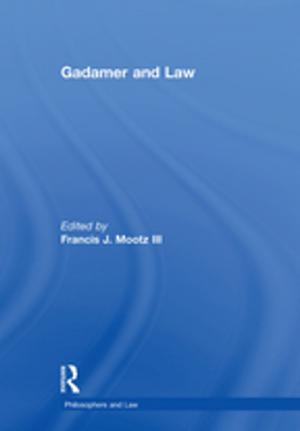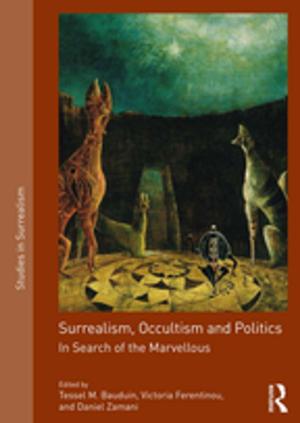Musical Mobilities
Son Jarocho and the Circulation of Tradition Across Mexico and the United States
Nonfiction, Social & Cultural Studies, Social Science, Sociology| Author: | Alejandro Miranda Nieto | ISBN: | 9781351864206 |
| Publisher: | Taylor and Francis | Publication: | November 10, 2017 |
| Imprint: | Routledge | Language: | English |
| Author: | Alejandro Miranda Nieto |
| ISBN: | 9781351864206 |
| Publisher: | Taylor and Francis |
| Publication: | November 10, 2017 |
| Imprint: | Routledge |
| Language: | English |
How do musical practices move? Though technology increasingly plays a great part in establishing different degrees of spatial proximity, music making still seems to be tied to specific geographical locations, cultures or communities. The identity of musical traditions, in particular, is often demarcated by a presumed degree of uniformity amongst its practitioners.
Musical Mobilities analyses how a musical tradition moves literally and metaphorically: the ways in which people, objects and information travel across geographical locations, just as practices as recognisable entities circulate along with meanings, competencies and embodied dispositions. This unique ethnography focuses on son jarocho, a musical practice originating in southeast Mexico that is currently reproduced through transnational connections, particularly in the United States. Paradoxically, the transformation of son jarocho has been a noticeable outcome of its recuperation and preservation. Thus, in describing the moves of this musical tradition, this book provides a theoretical and empirical perspective on the dissonances between cultural continuity and change.
The first ethnographic work to explicitly address the continuity and transformation of a musical practice through the analysis of multiple forms of mobility and fixity, Musical Mobilities will appeal to undergraduate and postgraduate students and postdoctoral researchers interested in fields such as Latin American & Hispanic Studies, South American Music, Ethnomusicology, Cultural Studies and Sociology of Culture.
How do musical practices move? Though technology increasingly plays a great part in establishing different degrees of spatial proximity, music making still seems to be tied to specific geographical locations, cultures or communities. The identity of musical traditions, in particular, is often demarcated by a presumed degree of uniformity amongst its practitioners.
Musical Mobilities analyses how a musical tradition moves literally and metaphorically: the ways in which people, objects and information travel across geographical locations, just as practices as recognisable entities circulate along with meanings, competencies and embodied dispositions. This unique ethnography focuses on son jarocho, a musical practice originating in southeast Mexico that is currently reproduced through transnational connections, particularly in the United States. Paradoxically, the transformation of son jarocho has been a noticeable outcome of its recuperation and preservation. Thus, in describing the moves of this musical tradition, this book provides a theoretical and empirical perspective on the dissonances between cultural continuity and change.
The first ethnographic work to explicitly address the continuity and transformation of a musical practice through the analysis of multiple forms of mobility and fixity, Musical Mobilities will appeal to undergraduate and postgraduate students and postdoctoral researchers interested in fields such as Latin American & Hispanic Studies, South American Music, Ethnomusicology, Cultural Studies and Sociology of Culture.















